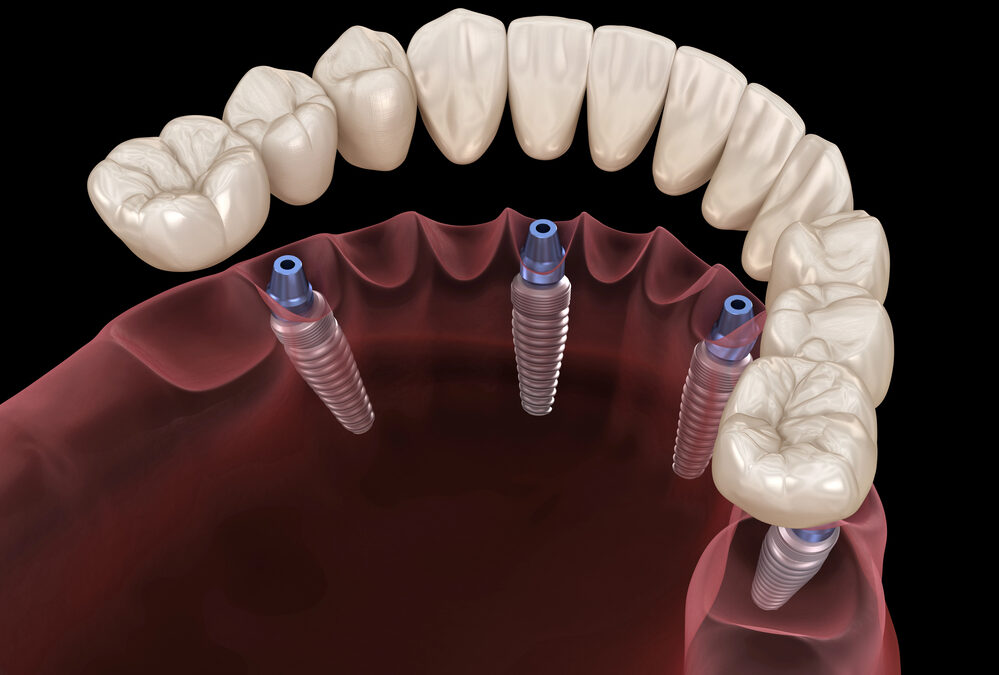The popularity of All-on-4 implants in Melbourne continues to rise, offering patients a permanent and natural-looking solution for missing teeth. However, the success of this life-changing procedure doesn’t end with surgery. Proper aftercare plays a vital role in ensuring a smooth recovery and preserving the longevity of the implants. From managing discomfort to eating from recovery back to a full diet, following expert advice is key to optimal results.
Understanding the All-on-4 Recovery Timeline
After receiving All-on-4 implants in Melbourne, patients should be prepared for a structured recovery process. While the immediate post-operative period involves rest and healing, long-term care focuses on maintaining the implants for years to come.
The First 72 Hours: Managing Discomfort
The initial phase of recovery typically involves mild swelling, tenderness, and slight bleeding around the surgical sites. To promote healing:
– Rest and Elevate: Rest as much as possible and keep your head elevated, especially while sleeping, to minimize swelling.
– Cold Compress: Apply an ice pack to the outside of your cheeks for 15-20 minutes at a time to reduce inflammation.
– Pain Management: Melbourne dentists often prescribe pain relievers or recommend over-the-counter medications, such as ibuprofen, to control discomfort.
– Oral Hygiene: Avoid brushing directly over the implant sites for the first few days. Instead, gently rinse with a saltwater solution or a dentist-recommended antiseptic mouthwash.
Dietary Guidelines: Eating from Recovery Back to a Full Diet
One of the most important aspects of All-on-4 aftercare is a gradual transition in diet. While you may be eager to resume normal eating habits, patience is essential.
Stage 1: The First Week – Soft and Liquid Foods
During the first week, your gums and bone are still healing, making it necessary to stick to a soft or liquid diet. Opt for:
– Smoothies, soups, and broths (lukewarm, not hot)
– Mashed potatoes, yogurt, and oatmeal
– Scrambled eggs and cottage cheese
– Protein shakes or nutritional drinks
Tips:
– Avoid spicy, hot, or crunchy foods that may irritate the surgical sites.
– Stay hydrated but avoid using straws, as the suction can disrupt the healing process.
Stage 2: Weeks 2-4 – Soft Solid Foods
As your implants begin to integrate with the jawbone, you can gradually introduce soft solid foods. Choose items that require minimal chewing, such as:
– Steamed vegetables and soft fruits (e.g., bananas, avocados)
– Pasta or rice dishes
– Ground meats or flaky fish
– Soft bread or pancakes
Tip: Cut food into smaller, bite-sized pieces to avoid putting excess pressure on the implants.
Stage 3: Weeks 5-8 – Slow Transition to a Regular Diet
Around the fifth week, most patients are ready to reintroduce firmer foods. However, you should still proceed with caution. Start with softer meats (e.g., chicken breast) and gradually work your way back to a regular diet.
Stage 4: Beyond 8 Weeks – Eating a Full Diet
Once the implants have fully stabilized (typically after 8-12 weeks), you can enjoy your regular diet again. Melbourne dentists recommend incorporating nutrient-rich foods to promote gum and bone health, such as leafy greens, lean proteins, and dairy.
Oral Hygiene and Maintenance
Proper oral care is essential for the long-term success of All-on-4 implants in Melbourne. Although implants are not susceptible to cavities, maintaining gum health is critical.
– Brushing: Use a soft-bristled toothbrush or an electric toothbrush with a gentle setting. Brush twice daily, focusing on the gum line and prosthetic teeth.
– Flossing: Use specialized implant floss or a water flosser to clean around the implants and under the prosthesis.
– Mouthwash: Rinse with a non-alcoholic, antibacterial mouthwash to reduce the risk of infection.
– Dental Visits: Schedule regular check-ups with your Melbourne dentist every 3-6 months for professional cleanings and to monitor the implants’ condition.
Lifestyle Tips for Optimal Healing
In addition to dietary and oral care practices, consider these lifestyle adjustments to promote healing:
– Avoid Smoking and Alcohol: Smoking can delay healing and increase the risk of implant failure. Avoid alcohol consumption during the recovery period as it can interfere with medication and slow down the healing process.
– Stay Active but Gentle: Light physical activity, such as walking, is beneficial, but avoid strenuous exercise for the first few weeks.
– Manage Stress: Stress can hinder healing by weakening the immune system. Engage in relaxation techniques, such as meditation or light stretching, to promote overall well-being.
Long-Term Care for All-on-4 Implants
Once you have fully recovered, maintaining your All-on-4 implants in Melbourne requires consistent oral care and routine dental visits. Here’s how to keep your implants in top condition:
– Use Night Guards if Necessary: If you have a habit of teeth grinding (bruxism), wear a custom night guard to protect your implants.
– Limit Sugary and Acidic Foods: While implants are not prone to cavities, sugary and acidic foods can still harm your gums and natural teeth.
– Stay Hydrated: Drinking plenty of water helps maintain saliva production, which protects against gum disease and oral infections.
The journey to a confident smile with All-on-4 implants in Melbourne doesn’t end after the surgery. Following a structured aftercare plan—from eating from recovery back to a full diet to maintaining excellent oral hygiene—will help you enjoy long-lasting results. With proper care and regular dental check-ups, your All-on-4 implants will continue to provide you with a beautiful, functional smile for years to come.

